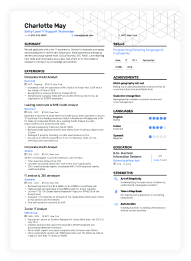Do you know what makes your company tick and what makes it unique? Do you and your team truly live the culture and values of your business? Is your team working smoothly, without having conflicts? If the answer’s a ‘’No’’ to any of these questions, it’s a good idea to think about what to change in order to answer ‘’Yes’’. In his study, Professor Noam Wasserman looked at 6500 failed businesses. 65% of those failed as a result of co-founder conflict or a bad company culture. But don’t worry, not everything’s lost!
We had a chat with Bretton Putter, an entrepreneur and company culture geneticist, who’s been helping companies to identify, embed and reinforce their company culture to become more successful. After he studied 300+ companies, he found that businesses that scale quickly and successfully have one thing in common. A well defined, implemented and strong culture. So if you’re a startup, a small company that’s been running for many years or a big corporation, here’s an advice on how to identify and embed a good company culture to scale your business effectively.
1. Brett, what is company culture?
It’s a combination of values, mission, beliefs, and purpose. Values are the DNA of a culture and then the mission, vision, beliefs, and philosophy are laid on top of that. [clickToTweet tweet=”#CompanyCulture is ”the way we do things around here”. #definition by @BrettonPutter. ” quote=”It’s ”the way we do things around here.””]
2. How can startups define their company culture?
Once 2 people get together and start thinking about an idea, they already have the beginnings of a culture. The company culture evolves from their values and the initial people they hire to join the company. The best case scenario is to start defining and working on company culture right at the start of the journey because your culture is formed directly from your values. And your values then define you and your team’s behaviors.
The first thing that founders should do when they start a business together is to define and understand their own personal values. The next step is then to understand where the mismatches are between the individual’s values and how bad those mismatches are. If one co-founder says ‘’I want to earn a lot of money’’ and the other says ‘’I want to save the world’’, there’s potential for a disaster because they will be making business decisions based on these values.
Once they define how much their values overlap, they can move on to the next step and start thinking about what the aspirational values for the business are.
To start the process of outlining your values, answer the following.
- If you were to explain to a friend who you hadn’t seen for a while why you joined the company, what would you say?
- What are the reasons you’re working in this company?
- What’s important to you about working there?
- What are the values that you are proud of?
- What makes us different from the competition?
- Why are we succeeding now?
- What values make us unique?
- Why do our customers choose to work with us?
- Why do you love coming to work?
This will start the process towards identifying your company culture.
In an early stage startup, where in the beginning you might be focused on getting to MVP or raising your seed round, the initial values may be focused on the immediate needs of the business. Because the business is at such an early stage the values and expected behaviors against those values could potentially change over time. So you need to be able to understand what your aspirational values are for the business, and then you need to test whether you and your team are living them. A lot of startups stop thinking about their values once they have written them down, they don’t invest in embedding and reinforcing those values on an ongoing basis and that’s where issues will arise later down the line.
3. How can small companies that have existed for over 20 years and never thought of company culture identify it?
Startups and small companies have the advantage of small teams where it will be easier to work and implement the process of defining, embedding and reinforcing the culture. First, the founders of the company should define what they believe the current values of the company are. They should then ask the team to list the values of the company, compare, and discuss the list of values with the team. If there is a major mismatch between the founders and the team, then it is vital to clear it up because it will only get worse over time. It will eventually go wrong if there is a significant mismatch between team’s values and one of the founder’s values and it is crucial that alignment is achieved, if possible, to ensure the business can grow and scale effectively.
Often, founders define certain values, and the team recognizes different values. That’s because the founders’ aspirational values don’t match their actual behavior. The team is looking at the founders and watching their actual behaviors, versus what the aspirational values the founders claim they want the business to have. It’s important for the founders to take the team’s point of view into account and to create a set of values for the company that matches the leadership and the team. Once you know what the values of your business are, you can start building them into your reward structures, communication, and other processes and functions of the business.
4. After companies identify their culture, how can they embed it?
There are 6 ways to embed company culture:
- What the CEO, executive team, or founders measure and control?
- How they invest or allocate funds?
- How they coach teach, educate or mentor?
- What they reward and give status to?
- How they promote, hire or fire?
- How they react in a disaster or crisis situations?
Here are 2 examples of how you can see whether your company culture is embedded:
- If you say: ‘’Customer service is our No. 1 priority’’. Then, the customer service team comes and says ‘’We need to buy a software for this service’’. If your answer is ‘’No, we need to buy a CRM tool for sales!’’ Essentially you verbalized that customer service is important but your behavior demonstrated that sales are actually more important.
- One of your values is ‘’teamwork’’, but you reward the individual. Rewarding somebody against what you claim to be one of your values builds a disconnect with the values and mistrust in the organization. It also means your values and culture are not embedded properly.
5. How can companies that scale fast keep a great company culture?"?
Once the values are in place it is all about the hiring process. [clickToTweet tweet=”To ensure the #CompanyCulture stays consistent, each new hire needs to be a good #CultureFit. #hiring @BrettonPutter” quote=”To ensure the company culture stays consistent, each new hire needs to be a good culture fit.”] To do that, companies need to switch to values based hiring process, which involves understanding the values and understanding the expected behaviors against those values. And then creating interview questions against those expected behaviors.
For Example:
Our value is ‘’teamwork’’, then the expected behavior is – the team always comes first. The interview question is: ‘’When last did you take one for the team?, How did it feel and what happened?’’ When you ask each candidate this question, you’ll be able to score them against those answers afterwards.
The values based hiring process is the missing piece in many companies at the moment. And it’s the best way to ensure that candidate matches your values.
Another thing that most companies don’t do very well is the onboarding process. After the candidate joins the company, it’s important to help them hit the ground running and be productive from day one. Some companies invest in training and dump a lot of information on the new hires. The best companies, help the new joiner develop relationships within the company as the first step. They have a buddy system which helps the new joiner work out what the real issues in the company and in their role are, and who are the most important people. So they use a bit of training, but the focus is on relationships, because relationships create trust. And trust allows teammates to work well together.
6. How can companies measure their company culture?
Measuring company culture is quite hard because for most companies it is an invisible and subconscious liability versus a tangible measurable asset. You can do surveys on employee engagement but this is a snapshot of time and employee engagement is only a small piece of the culture puzzle. Ask yourselves the following questions to evaluate the strength of your company culture.
- Are we able to hire the right A+ candidates who fit with the company’s culture?
- Are those candidates approaching us?
- Do we have low staff turnover?
- Does the leadership team have more energy and time available to work on the business rather than in the business?
- How strong are the bonds between team members?
- Do we have a happier workplace environment, with fewer sick days, lower stress levels and more respectful communication?
- Do our people take personal responsibility for results?
- Is there more autonomy, healthier intra- and inter-team dynamics, less conflict, less need for mediation in our company?
- Does everyone pull in the same direction during times of hardship for the company?
- Do we have highly engaged employees who happily invest their discretionary energy back into the company?
- Is there a values match, meaning that for our people, it is more than “just a job”: it is self-development?
- Can we demonstrate that we have improved happiness and job satisfaction?
Back to you!
Defining your company values and then company culture is something that can’t happen overnight. Investing the time into it, though, can have a positive impact on both employees and the future of your company. As the co-founder and CEO of Airbnb said: [clickToTweet tweet=”#CompanyCulture is the foundation for future innovation. An #entrepreneur’s job is to build the foundation. @bchesky” quote=”A company’s culture is the foundation for future innovation. An entrepreneur’s job is to build the foundation. “]
Keep it in mind.
In case you have any more questions, let us know in the comments below. You can also follow Brett or his company Culture Gene on Twitter for more info.
Make one that's truly you.



